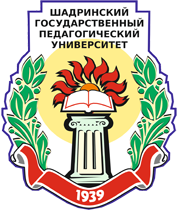Развитие умений у детей 4-5 лет задавать вопросы и отвечать на них в процессе проведения опытов и экспериментов
Developing the skills of 4-5 years old children to ask questions and answer them in the process of carrying out experiments
Аннотация
Представленная статья посвящена актуальной в современном дошкольном образовании проблеме овладения детьми 4-5 лет связной диалогической речью, в которую входит умение задавать вопросы и отвечать на них. В статье рассматриваются теоретические аспекты проблемы развития умений задавать вопросы и отвечать на них у детей средней группы: выделены свойства вопросов и умения детей, связанные с ответами на них. Обосновываются педагогические условия использования детской экспериментальной деятельности в целях развития у детей умений задавать вопросы и отвечать на них: проведение опытов и экспериментов, использование проблемных ситуаций, постановка вопросов детьми и вопросы к детям на основе Технологических карт освоения детьми способов формулировки вопросов (ТРИЗ). Представлено описание педагогического эксперимента: знакомство с вопросами соответствующих детям 4–5 лет вопросов (восполняющий, описательный, каузальный, оценочный, воображаемый), с карточкой «Задаем вопросы» по технологии ТРИЗ, решение проблемных ситуаций в процессе опытов и экспериментов, проведена оценка эффективности использования опытов и экспериментов в качестве средства развития умений задавать вопросы и отвечать на них.
Abstract: The presented article is devoted to the problem of mastering coherent dialogical speech by 4-5 years old children which is urgent in modern preschool education which includes the ability to ask questions and answer them. The article examines the theoretical aspects of the problem of developing the ability to ask questions and answer them in children of the middle group: the properties of questions and the skills of children associated with the answers to them are highlighted. The pedagogical conditions for the use of children's experimental activities in order to develop children's skills to ask questions and answer them are substantiated: conducting experiments and experiments, using problem situations, posing questions by children and questions to children on the basis of Technological maps of how children master ways of formulating questions (Theory of inventive problem solving). The description of the pedagogical experiment is presented: acquaintance with the questions of the questions corresponding to 4-5 years old children (replenishing, descriptive, causal, evaluative, imaginary), with the card “We ask questions” according to the Theory of inventive problem solving technology, solving problem situations in the process of experiments and experiments, evaluating the effectiveness experiences and experimentation as a means of developing the ability to ask and answer questions.






